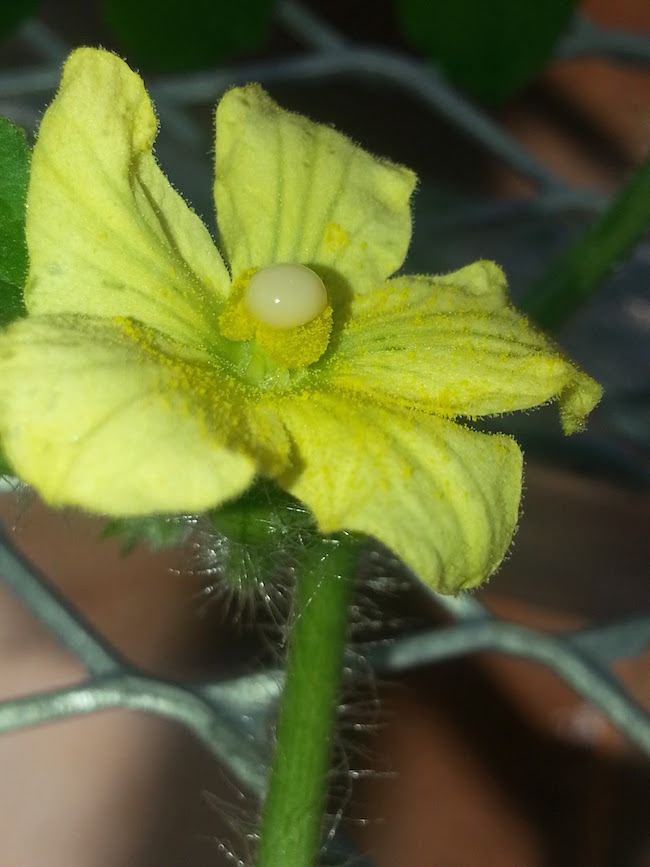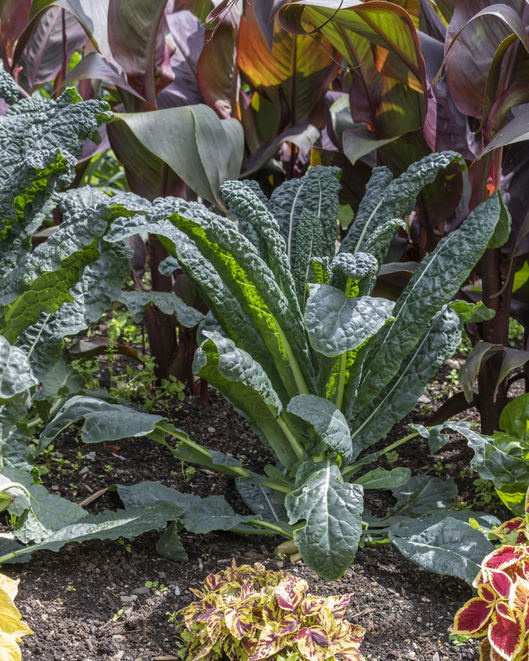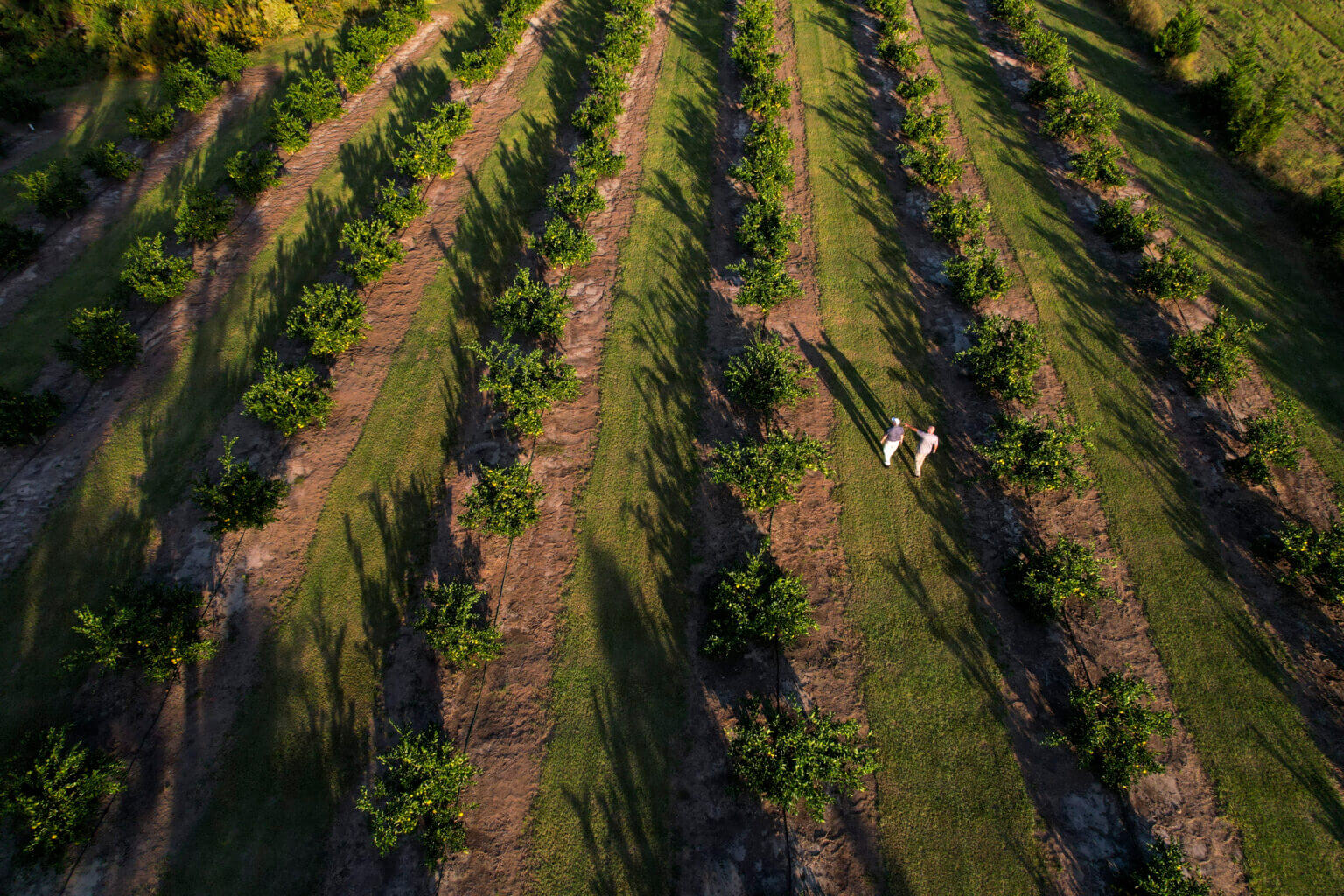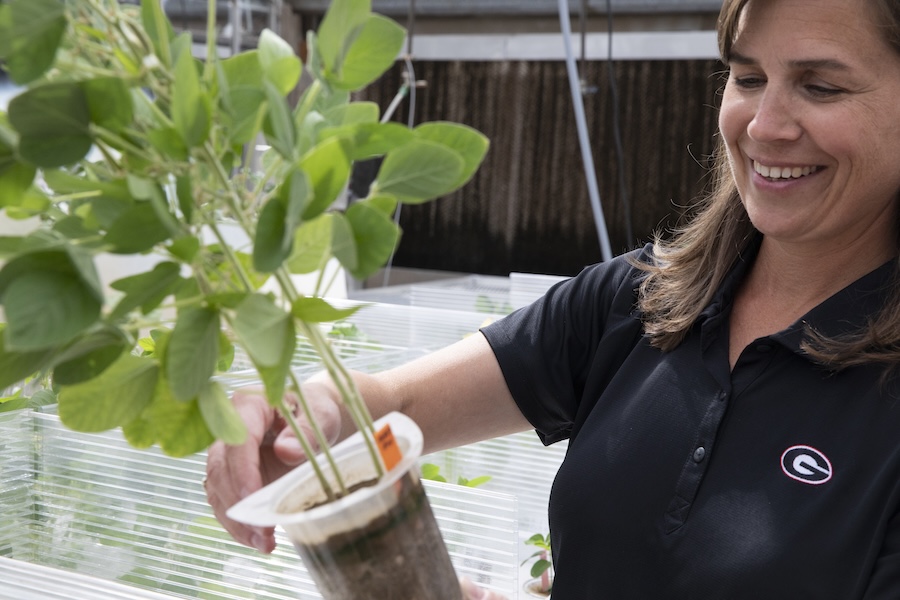Georgia farmers struggle to control bacterial fruit blotch (BFB), but University of Georgia plant pathologists have discovered that naturally occurring bacteria can combat the disease.
The disease initially devastated watermelon crops in the 1980s. It has since been found on many other cucurbits, including cucumbers and pumpkins. BFB reduces fruit yield and seed quality as the pathogen comes from seeds and is transmitted by seeds. To date, there are no BFB-resistant plant varieties, and farmers must rely heavily on foliar-applied chemicals.
With funding from the Southern Sustainable Agriculture Research and Education program, graduate student in the UGA College of Agricultural and Environmental Sciences Safira Sutton is studying the effectiveness of applying a Bacillus bacteria species to the stigmas of female flowers to slow the spread of BFB from seed to seedling. Past research shows BFB can infect watermelon seeds by penetrating the pistil of the female flower and settling in the seed’s endosperm.
Sutton worked with UGA plant pathologist Ron Walcott to screen 300 potential bacteria. The research team selected three strains of Bacillus bacteria species based on their ability to reduce BFB seed-to-seedling transmission when applied as a seed treatment.
In a watermelon field plot on the UGA Blackshank Farm in Tifton, Georgia, female watermelon flowers were hand-pollinated. The stigmas were inoculated separately with the three bacteria strains, and the flowers were allowed to develop into mature fruit. The watermelon seeds were stored at 4 degrees Celsius until all the melons were harvested. The seeds were then used to grow seedlings, which the UGA team tested for BFB.
The UGA research showed the treatment reduced BFB by up to 53 percent in the resulting seeds. Seedlings produced from untreated flowers in the research trial had a BFB transmission rate of 80 percent.
“This data suggests great potential for flower treatments with biocontrol agents to aid the management of bacterial fruit blotch,” said Sutton. “Results of this study provide an environmentally sound and sustainable approach for managing seed-borne plant diseases that may be of potential use for seed companies.”
The UGA researchers believe this method could be incorporated with other sustainable management practices as part of an overall integrated disease management program.








